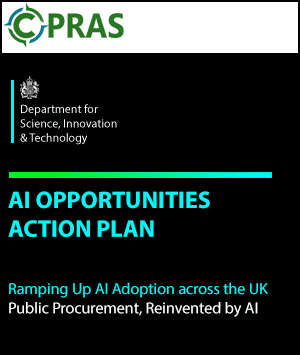VSO
|
|
|
Sierra Leone: ten years on from end of civil war, youth unemployment could threaten new unrest, warns VSO
Ten years on from the end of civil war in Sierra Leone (18 January), mass youth unemployment poses a threat to the existing peace and stability in the country, international development charity VSO is warning.
Despite policies having been put in place to address youth issues, the current situation remains dire for young people in the country. Seventy per cent of the country’s youth population is unemployed or underemployed and 50 per cent illiterate or unskilled, according to UN figures (1). Tensions erupted in September last year in Bo, Sierra Leone’s second largest city in the south of the country, where a political rally turned into a riot and young people reportedly ransacked some parts of the town.
The UN has recognised that ‘large numbers of unemployed youths are a potential source of insecurity given their vulnerability to recruitment into criminal and violent activities’ (2).
VSO is working with local partners in Sierra Leone to help provide young people with the skills they need to secure a decent livelihood for themselves. But without a development focus on creating decent jobs and ensuring people have the skills to do them, there are concerns that the conditions for instability could be being created all over again.
William Dauda, Livelihoods Programme manager for VSO in Sierra Leone, said:
“Huge numbers of young people in Sierra Leone lack job opportunities, skills for employment or capital to start a business.
“Young people are a potential resource for growth and social development if productively employed. But they could also be a source of devastating social tension, conflict and instability if they are left jobless and without hope.
“In the north where we work, hundreds of job-seeking young people have moved to the area from other parts of the country, most lacking the skills and education to secure gainful employment. Many have stayed for months with no work. They are frustrated and with elections scheduled for November 2012, there are some concerns that this frustration could spill over into unrest.”
A UNDP District Based Youth study in May 2011 highlighted youth employment challenges in five districts in Sierra Leone. The study revealed that most young people in Sierra Leone do not have a basic livelihood or employable skills and further lack the knowledge, training and capital to start up or sustainably manage a business.
The situation is not unique to Sierra Leone. Over 75 million young people were unemployed worldwide at the end of 2010, according to figures from the International Labour Organisation (ILO). Many more in developing countries are underemployed “working poor”, forced to take whatever poorly-paid work they can get and subsisting below the poverty line of $2 per day. VSO is calling on world leaders to take urgent action on jobs in developing countries, placing decent work at the heart of efforts to spur global economic recovery and eradicate poverty.
Lisa Horner, Policy Manager at VSO, added:
“We need to get the world working. Poor people want to work their way out of poverty and the global economy needs the boost that their labour could provide.
"But leaders in developing and advanced economies need to work together to ensure that trade, investment and development policies focus on generating productive employment for the world's poorest people. This simply isn't happening at the moment."
VSO is working in Sierra Leone with local NGO partners like Binkolo Growth Centre, MADAM and Future In Our Hands, who operate in Sierra Leone’s least developed northern regions. The area has a heavy concentration of unemployed and under employed young people who are desperately seeking jobs with two mining companies, UK-based London Mining and Africa Minerals, which have been operating in the area in the last 2 years.
Abdulai, 28, now works in cassava production after receiving training at Binkolo Growth Centre. But until then he had almost lost hope. He said:
“I spent four years in Freetown where I lived on the streets. The only way I found money to survive was to do odd jobs carrying things, doing work for anyone who would pay… We would sometimes steal bags, money, or things that were worth money that we could sell, just to survive. I didn’t feel good about it, but I had nobody else there. We did not feel good about ourselves; a man without a job does not feel good. We were trying so hard to find work.
“ I went back to Binkolo because my mother sent for me; I returned to find out my father had died during the war… Since 2007, I have not really been doing anything. It is very rough for young people here – so many are unemployed. Every day they come here to Binkolo searching for work… but most of my friends don’t have a job. Many get in trouble with the police for stealing.”
Later this year VSO will launch a new public campaign focusing on jobs in the developing world, with specific attention paid to the situation for young people and women.
Editor's notes
(1) UN Peacebuilding, Joint Response to youth employment in Sierra Leone http://www.un.org/en/peacebuilding/cscs/sl/key_docs/sl_joint_response.pdf
(2) Ibid
Photos are available on request from the VSO Press Office.
About VSO:
VSO is different from most organisations that fight poverty. Instead of sending money or food, we bring people together to share skills and knowledge. In doing so, we create lasting change. VSO volunteers work in whatever fields are necessary to address the forces that keep people in poverty – from education and health through helping people learn the skills they need to make a living. In doing so they invest in local people, so the impact they have endures long after their placement ends. Visit www.vso.org.uk for more information.


